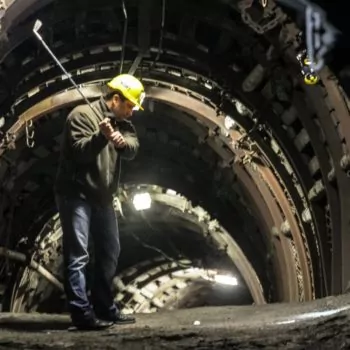In allowing the sale of Vattenfall’s lignite business to EPH, the Swedish and German governments have missed a historic opportunity. The sales process could have been a test case to set a positive precedent by agreeing on a negotiated long-term plan to close the plants in a way that is both fair to workers and that minimises environmental damage.
Instead, Vattenfall’s East German lignite business has now been sold to a company that looks set purely on maximising short-term profits, has an obscure ownership structure relying on letterbox companies in tax havens and lacks any environmental and sustainability policies. EPH is also opposing the energy transition. In its most recent consolidated financial statement, EPH subsidiary JTSD identifies the expansion of renewables and energy efficiency measures as key threats to the profitability of its coal power plants.
While the deal is now agreed, the fundamental uncertainty around the German lignite industry remains. Given current electricity prices, many of the older lignite units are still unprofitable. Lignite, which is responsible for over half of German power sector emissions, is still completely incompatible with the country’s climate targets.
Even if an important opportunity was squandered, a constructive debate about managing the economic transition away from lignite in Germany’s coal regions has only been postponed. The thorny question of how to cushion the impacts of the low-carbon transition on coal-dependent communities remains as topical as ever.
Against this background, a new E3G Briefing Paper analyses past experiences with economic transitions and identifies policy instruments that have proved successful in helping post-mining regions transition to more diversified economies in the past.
Our paper “Instruments for a Managed Coal Phase-Out: German and International Experiences with Structural Change” has identified the following three components as essential elements of well-managed transitions:
> Forums of Participation and Dialogue
> Support and compensation schemes for workers in affected sectors
> Regional support schemes to promote economic diversification and reorientation
While political influence over economic and investment trends is limited and new economic structures cannot be created over night, the Briefing Paper details that there are tried and tested instruments of structural policy which can be used to cushion the impacts of a coal phase-out in coal-dependent regions. The obstacle is usually not a lack of alternatives to the coal economy, but a lack of political will on the part of local and national decision-makers, some of whom are personally entangled with existing economic structures.
The most important lesson to draw from past experiences with structural change is that pragmatic long-term planning is crucial to ensure a fair and orderly transition. Efforts to reindustrialise by doubling down on declining industries, or to delay the design of long-term plans, have proved counterproductive.


